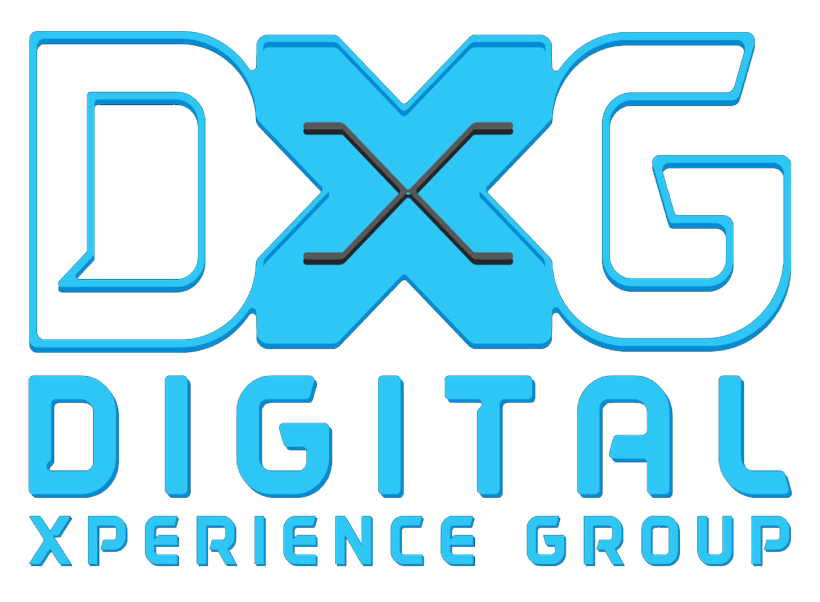


February 27, 2025
Most event professionals say teamwork is the #1 factor that determines an event’s success. Not the budget. Not the venue. Not even the marketing. Even the most exciting event idea will fall apart without a well-organized team working in sync. Think about it. The most breathtaking weddings, high-energy corporate conferences, and unforgettable festivals all have one thing in common: a well-organized, highly skilled team working behind the scenes to make it happen.
But building that kind of team? Not as easy as it sounds. Between finding the right people, setting clear roles, and keeping everyone on the same page, it takes strategy and leadership. The good news is you don’t have to figure it out on your own. We’ll break down exactly how to build a powerhouse event planning team. Let’s get started.
Ever heard the saying, “Too many cooks in the kitchen”? That’s exactly what happens when an event team doesn’t have clear roles. People step on each other’s toes, important details slip through the cracks, and before you know it, chaos takes over. To avoid that, everyone needs to know exactly what they’re responsible for.
Event Manager/Team Leader: They oversee the entire event, making sure everything stays on track, deadlines are met, and the team is working toward the same goal. From initial planning to post-event wrap-up, the Event Manager is the go-to problem solver when things don’t go as planned (because, let’s be real, something always doesn’t go as planned).
Logistics Coordinator: This is the master of movement—handling the venue selection, transportation, seating arrangements, and on-site setup. They make sure the speakers have working microphones, the stage doesn’t collapse, and the caterer doesn’t get lost on the way. If it involves where, when, and how things happen, the Logistics Coordinator is on it.
Marketing and Communications Specialist: You can plan the most epic event ever, but if no one knows about it, what’s the point? That’s where the Marketing & Comms Specialist comes in. They handle event promotion, social media, email campaigns, and public relations. Whether it’s hyping up attendees, keeping sponsors happy, or managing last-minute schedule changes, this person ensures the right message reaches the right people at the right time.
Sponsorship and Finance Manager: Without funding, events don’t happen. This role is all about keeping the money in check—securing sponsorships, managing budgets, negotiating contracts, and making sure expenses don’t spiral out of control. They’re the reason you don’t end up paying for the event out of your own pocket.
Guest Experience Coordinator: Ever been to an event where no one seemed to know what was going on? Annoying, right? The Guest Experience Coordinator makes sure attendees have a smooth, enjoyable experience. They handle ticketing, check-ins, VIP arrangements, and last-minute guest inquiries. From the moment guests arrive to the moment they leave, this person ensures they feel welcomed and well taken care of.
Volunteer Coordinator: Many events rely on volunteers to keep things running, and the Volunteer Coordinator is the one who makes sure they know what they’re doing. This includes recruiting, training, and managing volunteers, ensuring they show up on time, understand their roles, and help create a seamless event experience.

Building an event planning team isn’t just about filling roles—it’s about finding the right people who can handle pressure, think on their feet, and actually enjoy the chaos that comes with pulling off a great event.
Assess Event Requirements: Before you start hiring, take a step back and look at the big picture. What kind of event are you planning? A small corporate gathering will need a very different team than a massive music festival. On the other hand, a larger event might need extra logistics coordinators, security, and a tech team.
If your event involves speakers, live entertainment, or interactive elements, you’ll need specialized roles to handle those details. Be realistic about how many people you can afford to bring on board. A small team of skilled professionals is often better than an oversized, uncoordinated group.
Source Qualified Candidates: Once you know what roles you need, it’s time to find the right people. Forget about just posting a generic job ad and hoping for the best—go where the talent actually is. Ask around. Event professionals often know other great event professionals.
Join event planning and hospitality forums where experienced candidates hang out. For short-term needs, sites like Upwork or PeoplePerHour can connect you with experienced event specialists.Many schools have event management programs with eager students looking for experience.
Evaluate Soft Skills: Technical skills are important, but when things start going wrong (and they will), you’ll want a team that can stay calm under pressure. Look for candidates who have strong communication. They need to be able to clearly relay information to vendors, guests, and the rest of the team.
Next, adaptability. No matter how well you plan, something will change at the last minute. Find people who can roll with it. Then, problem-solving skills. Whether it’s a vendor backing out or a VIP running late, quick thinking is a must. Last, team spirit. Event planning is not a solo sport. You need people who can collaborate and step up when needed.
Diversity and Inclusion: A great event team isn’t just a bunch of people with the same background and experiences. A mix of perspectives leads to better creativity, decision-making, and problem-solving.
Diverse teams bring fresh ideas. A variety of backgrounds means more innovative solutions. Representation also matters. A team that reflects your audience’s diversity can create a more inclusive and welcoming event. Cultural awareness helps. Especially for international events, having a team that understands different customs and traditions can prevent missteps.
More for you: Top Event Planning Mistakes and How to Avoid Them
You can have the most talented event planning team in the world, but if no one knows what’s going on, the whole thing can fall apart fast. Miscommunication leads to missed deadlines, double-booked vendors, and a whole lot of unnecessary stress. That’s why strong communication and collaboration aren’t just nice to have—they’re essential.
Implement Collaborative Tools: Gone are the days of endless email chains and confusing spreadsheets. If you want a smooth workflow, you need the right tools like Trello, Asana, Slack etc. Pick a tool, stick to it, and make sure everyone actually uses it. A fancy project management app is useless if half your team still relies on Post-it notes.
Regular Team Meetings: No one likes meetings just for the sake of meetings, but structured, consistent check-ins can save you from last-minute disasters. Here’s how to make them count:
Weekly planning meetings – Get everyone together to discuss progress, upcoming deadlines, and any potential roadblocks.
Quick daily check-ins (if needed) – A 10-minute huddle to go over immediate tasks can keep things running smoothly.
Post-event debriefs – Review what went well, what didn’t, and what to improve for the next event.
And don’t forget to celebrate wins—even the small ones. Acknowledging your team’s hard work keeps morale high and reminds everyone why they love what they do.
Establish Clear Communication Channels: Ever played the game of telephone as a kid? That’s what happens when event teams don’t have clear communication protocols. Messages get lost, details get misunderstood, and someone always ends up out of the loop. To avoid this:
Define how important updates should be shared. Major decisions should be documented in your project management tool, not just mentioned in passing.
Use different channels for different types of communication. Slack or WhatsApp for quick questions, email for formal updates, and shared documents for key planning details.
Make sure everyone knows who to contact for what. Instead of bombarding the Event Manager with every issue, have clear points of contact for logistics, marketing, finance, etc. (Also read: The Importance of Communication in Production Management)

Winging it is not an event planning strategy. If you don’t have a solid plan in place, things will fall apart fast—vendors will get confused, deadlines will be missed, and you’ll be putting out fires instead of actually running the event. To make it happen, you need a structured planning process that keeps everything (and everyone) on track.
Set Clear Objectives and Goals: Before you dive into logistics, take a step back and ask:
What does success look like? Is it a sold-out crowd? A flawless product launch? High engagement on social media?
Who is the target audience? Knowing who you’re planning for will shape everything from venue choice to marketing tactics.
What’s the budget? Understanding financial constraints early will prevent overspending down the road.
Create a Detailed Timeline: Events have a million moving parts, and if you don’t organize them properly, things will slip through the cracks. That’s why a detailed timeline is a must.
Work backward from the event date. Start with the big day and map out everything that needs to happen before then. List all major tasks. Venue booking, vendor contracts, marketing campaigns, ticket sales, rehearsals—you name it.
Assign deadlines. Be realistic, and give yourself some buffer time for unexpected delays. Delegate responsibilities. Make sure every task has a clear owner so there’s no confusion.
Risk Management Planning: Even with the best planning, something will always go wrong. The key is to anticipate potential issues before they happen so you’re not scrambling at the last minute. Here’s how to prepare:
Identify potential risks. Think about weather problems (for outdoor events), vendor cancellations, low ticket sales, or technical failures.
Develop backup plans. What’s your Plan B if a speaker cancels? If the sound system fails? If there’s a sudden downpour?
Communicate contingency plans. Make sure the team knows exactly what to do in case of an emergency—this avoids panic and keeps things running smoothly.
The world of event planning is always evolving—new trends, tools, and technologies pop up all the time. To keep your team on top of their game (and motivated to stay with you long-term), you need to invest in their growth. This not only helps them do their jobs better but also keeps them engaged and excited about their work.
Provide Training Opportunities: The event planning landscape changes quickly, so it’s crucial to keep your team up to date with the latest trends and technologies. Host regular internal workshops or bring in experts to cover new event planning tools, social media strategies, or the latest trends in event design and guest experience.
Encourage team members to take online courses or certifications, like event management certifications from organizations like Meeting Professionals International (MPI) or the Event Planning Institute. If you’re using new software for things like virtual events or event ticketing, make sure your team knows how to use it effectively.
Training doesn’t have to be formal every time—even short, casual knowledge-sharing sessions can keep the team sharp and in the know.
Mentorship Programs: Pairing less experienced team members with seasoned pros can create a stronger, more cohesive team. Experienced members pass on their knowledge, while newer folks get up to speed faster and feel more supported.
Assign mentors to new team members or those looking to grow in their roles. These relationships provide guidance, feedback, and the opportunity to ask questions in a non-judgmental setting. Encourage mentors to share their own learning experiences, successes, and challenges, so mentees get a real-world perspective on event planning.
Create paths for mentorship that lead to clear career development goals, so team members understand how they can grow within your organization.
Attend Industry Conferences: One of the best ways to stay connected with the event planning world is to get out there and network with peers. Encourage your team to attend industry events, whether virtual or in person. Meeting other professionals allows your team to exchange ideas and build connections that could help with future events.
Conferences often feature workshops, panel discussions, and keynote speakers from industry leaders, giving your team valuable insights into what’s working (and what’s not) in the world of event planning. Staying on top of the latest trends in event technology, sustainability, or attendee engagement can give you an edge over competitors.
Some top conferences to consider are the Event Leadership Institute Conference and IMEX (International Meetings Exchange), which offer networking, education, and exposure to the newest event innovations.

Leveraging technology can streamline processes, improve efficiency, and even open up new possibilities for your events. If you’re not already using tech to your advantage, now’s the time to start.
Adopt Event Management Software: With event management software, you can easily organize all the moving parts and stay on top of everything—from registration to attendee engagement. Tools like Eventbrite, Cvent, or Whova make it easy to handle event registrations, ticket sales, and attendee tracking in one place.
Use platforms to automatically generate event schedules, assign tasks, and share updates with your team in real-time. Many platforms offer live polls, surveys, and chat features to keep your audience engaged during the event, whether it’s virtual or in-person. (Check this out: How to Choose the Right Event Platform for Your Needs)
Incorporate Virtual Elements: Hybrid events are here to stay, and they offer a fantastic way to expand your event’s reach beyond your local audience. Whether your event is fully virtual or a hybrid (in-person + online), tech makes it possible to engage a much wider audience.
Utilize Data Analytics: One of the biggest benefits of tech is the ability to gather data that can help you improve your events. From registration numbers to attendee behavior, data can provide valuable insights into what works and what doesn’t. Here’s how to use it:
Use post-event surveys or live polling to gather feedback on speakers, sessions, and overall satisfaction.
Pay attention to things like how many people attended, what sessions they participated in, and how long they stayed engaged. Platforms like Google Analytics, HubSpot, or even in-app event tracking can give you the hard data.
Use the insights from your data to fine-tune future events, like adjusting the format, improving marketing strategies, or tailoring content to better match your audience's needs.
When it comes to event planning, you're not working in a vacuum. Your vendors, partners, and other stakeholders are crucial to the success of your event. Building strong, collaborative relationships with these folks will help you avoid misunderstandings, ensure smoother operations, and ultimately create a better experience for everyone involved.
Engage Vendors and Partners Early: A successful event doesn’t happen overnight, and it definitely doesn’t happen without early collaboration. Whether you’re working with caterers, decorators, AV specialists, or sponsors, getting everyone on board early is key.
Early discussions help ensure that you and your vendors are on the same page about what’s needed—whether it’s timelines, budgets, or specific deliverables. Knowing what each vendor can and can’t do will help you avoid last-minute scrambling when it’s time to execute.
By engaging early, you’re more likely to spot potential issues (like limited availability or capacity) before they become big problems.
A good rule of thumb? Bring stakeholders into the planning process as early as possible. The more they know about your vision and needs, the better they can deliver.
Maintain Open Communication: Nothing frustrates a vendor more than being left in the dark, and the last thing you want is to be caught off guard by last-minute changes. That’s why keeping the lines of communication wide open is essential.
Schedule recurring meetings or calls to keep everyone updated on progress, changes, and any concerns that might pop up. If plans shift, let your stakeholders know ASAP so they can adjust their own timelines or resources accordingly.
Negotiate Win-Win Agreements: The key to any successful relationship—especially in business—is ensuring that both sides benefit. When negotiating contracts with vendors or partners, aim for win-win agreements that leave everyone happy. Here’s how to do it:
Share your budget, timeline, and expectations openly to avoid surprises down the line.
If you’re working with a vendor you love, negotiate a deal that benefits both of you in the long run. Perhaps there’s room for discounts on future events, or mutually beneficial promotional opportunities.
Negotiation isn’t about winning at the other party’s expense. If you can find ways to give a little on both sides, you’ll build a solid, long-lasting relationship.
Think of these agreements as a partnership for the future, not just as contracts . The better you treat your vendors and partners, the more likely they’ll be to go above and beyond when it’s time to execute.

Once your event is over and the dust settles, it’s easy to just breathe a sigh of relief and move on to the next big thing. But post-event evaluation is one of the most crucial steps you can take to make your future events even better.
Debrief with the Team: Before you dive into attendee feedback, it’s important to first check in with your team. This helps you see the event from multiple perspectives, identify strengths, and uncover areas that need improvement. Here’s what to focus on:
What Went Well? – Celebrate successes! Discuss the things that went smoothly, like on-time deliveries, smooth registrations, or successful marketing strategies.
What Could Have Been Better? – Don’t shy away from the tough stuff. Were there any delays, miscommunications, or challenges that came up during the event? Identify them now, so you can address them moving forward.
Lessons Learned – Make it a no-blame zone—the goal is improvement. Encourage the team to openly share their observations and suggestions for how things can be done differently next time.
Survey Attendees: Your team isn’t the only one with valuable insights—your attendees are the heart of the event, so their feedback is just as important. Ask attendees for honest feedback on everything from the registration process to the event content, logistics, and overall experience. Keep it short but comprehensive—no one wants to fill out a novel-length survey.
Ask questions that will give you actionable data. How satisfied were they with the event? What did they love? What could have been improved? While ratings are useful, open-ended questions allow attendees to share thoughts and ideas you might not have considered.
Document Lessons Learned: Once the feedback is in and the team has shared their thoughts, it’s time to document your insights. Keep a record of what worked and what didn’t, along with the strategies or tools that made the event a success.
Use this collection of lessons to build on successful tactics for future events. What should be repeated, and what needs a fresh approach? If there are any recurring issues, document them so you don’t make the same mistakes again in the future.
Building a strong, efficient event planning team isn’t just about getting the right people in the right roles—it’s about creating an environment where communication flows, everyone feels supported, and technology works for you. It can be defining roles, recruiting the best talent, fostering collaboration, or gathering feedback after the event, each step plays a vital role in ensuring your event is a success.
Our expert team offers comprehensive services that can help you streamline every aspect of your event planning process. From strategic team composition to leveraging innovative technology, we’re here to make sure your team is ready to handle any challenge that comes your way.we provide all the tools, resources, and support you need to build a team that’s not only capable but truly unstoppable. Whether you're looking for event management software, professional development workshops, or stakeholder relationship management, we’ve got you covered under one roof. Have questions or need assistance? Contact us.